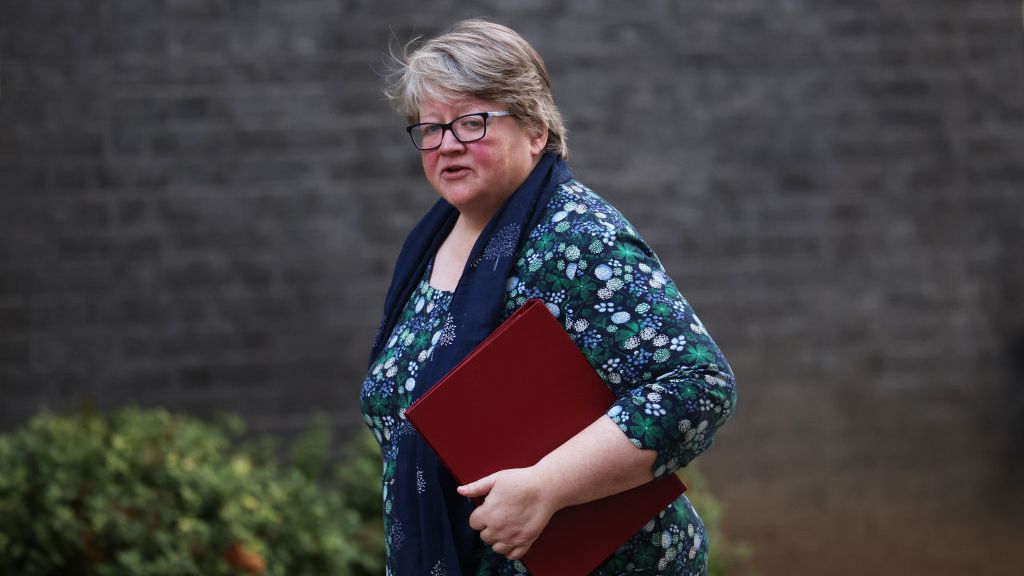Private sector to help Government tackle cyber crime
The minister of state for the armed forces has called on the private sector and academia to work with the Government in tackling cyber crime.


The private sector will play a key role in helping the UK Government tackle the threat of cyber crime.
This was the belief of Nick Harvey, minister of state for the armed forces, who claimed the Government needed to work with the private sector to keep up with the scale of the threat.
In a speech delivered yesterday to Chatham House, he said: "We must draw more effectively on the knowledge, experience and resources of the private sector who own and operate large parts of the critical networks that deliver our essential services."
Harvey also said academics needed to be involved so the UK was able to "keep pace with new technologies," and the pledge of 650 million investment into the National Cyber Security Programme will bring these influences together.
Harvey made his speech following the release of a report from Paul Cornish, head of the International Security Programme at Chatham House, which the minister claimed "challenges us to bring the debate out of the technical realm and into the political."
Despite his praise for the opportunities the internet can bring, Harvey claimed "man is wolf to his fellow man" and it also brings a lot of dangers.
Referring to the Government's plans to protect the nation from the cyber crime threat, Harvey said: "For me this is about protecting people's privacy and livelihood, not diminishing them - this is about protecting the freedom and opportunity cyber space brings."
Sign up today and you will receive a free copy of our Future Focus 2025 report - the leading guidance on AI, cybersecurity and other IT challenges as per 700+ senior executives
However, he said we must understand the "changing character of conflict" and how a serious threat is being brought to cyber space.
Nations who may not be able to challenge the UK through conventional military means could take advantage of the opportunity the web brings, Harvey explained.
He cited four reasons why other nations could take advantage: the low threshold of entry whereby the same technology citizens use on a day to day basis can be abused for an attack, the lack of geographical barriers, relative anonymity for those who cause the attack and the rapid nature in which cyber crime could have mass effect.
"All this means that cyber is a powerful asymmetric tool for warfare," said Harvey. "It can only be a matter of time before terrorists begin to use cyber space more systematically, not just as a tool for their own organisation, but as a method of attack."
Jennifer Scott is a former freelance journalist and currently political reporter for Sky News. She has a varied writing history, having started her career at Dennis Publishing, working in various roles across its business technology titles, including ITPro. Jennifer has specialised in a number of areas over the years and has produced a wealth of content for ITPro, focusing largely on data storage, networking, cloud computing, and telecommunications.
Most recently Jennifer has turned her skills to the political sphere and broadcast journalism, where she has worked for the BBC as a political reporter, before moving to Sky News.
-
 Trump's AI executive order could leave US in a 'regulatory vacuum'
Trump's AI executive order could leave US in a 'regulatory vacuum'News Citing a "patchwork of 50 different regulatory regimes" and "ideological bias", President Trump wants rules to be set at a federal level
-
 TPUs: Google's home advantage
TPUs: Google's home advantageITPro Podcast How does TPU v7 stack up against Nvidia's latest chips – and can Google scale AI using only its own supply?
-
 ‘Hugely significant’: Experts welcome UK government plans to back down in Apple encryption battle – but it’s not quite over yet
‘Hugely significant’: Experts welcome UK government plans to back down in Apple encryption battle – but it’s not quite over yetNews Tulsi Gabbard, US director of national intelligence, has confirmed the UK plans to back down on plans that would see Apple forced to create a "back door" for authorities.
-
 ‘A huge national security risk’: Thousands of government laptops, tablets, and phones are missing and nowhere to be found
‘A huge national security risk’: Thousands of government laptops, tablets, and phones are missing and nowhere to be foundNews A freedom of information disclosure shows more than 2,000 government-issued phones, tablets, and laptops have been lost or stolen, prompting huge cybersecurity concerns.
-
 The UK cybersecurity sector is worth over £13 billion, but experts say there’s huge untapped potential if it can overcome these hurdles
The UK cybersecurity sector is worth over £13 billion, but experts say there’s huge untapped potential if it can overcome these hurdlesAnalysis A new report released by the DSIT revealed the UK’s cybersecurity sector generated £13.2 billion over the last year
-
 "Thinly spread": Questions raised over UK government’s latest cyber funding scheme
"Thinly spread": Questions raised over UK government’s latest cyber funding schemeThe funding will go towards bolstering cyber skills, though some industry experts have questioned the size of the price tag
-
 Threat of cyber attacks to national security compared to that of chemical weapons
Threat of cyber attacks to national security compared to that of chemical weaponsNews The UK government has raised the threat level posed by cyber attacks, deeming it greater on average than an event such as the Salisbury poisoning
-
 2022 Public Sector Identity Index Report
2022 Public Sector Identity Index ReportWhitepaper UK Report
-
 UK and Japan strike digital partnership to collaborate on IoT security, semiconductors
UK and Japan strike digital partnership to collaborate on IoT security, semiconductorsNews The two countries are also set to align their approaches to digital regulation to make it easier for companies to operate in each nation
-
 Defra's legacy software problem 'threatens' UK gov cyber security until 2030
Defra's legacy software problem 'threatens' UK gov cyber security until 2030News The department spends over two-thirds of its digital budget on maintaining the risky applications, with no plan in place for a fix within the decade
